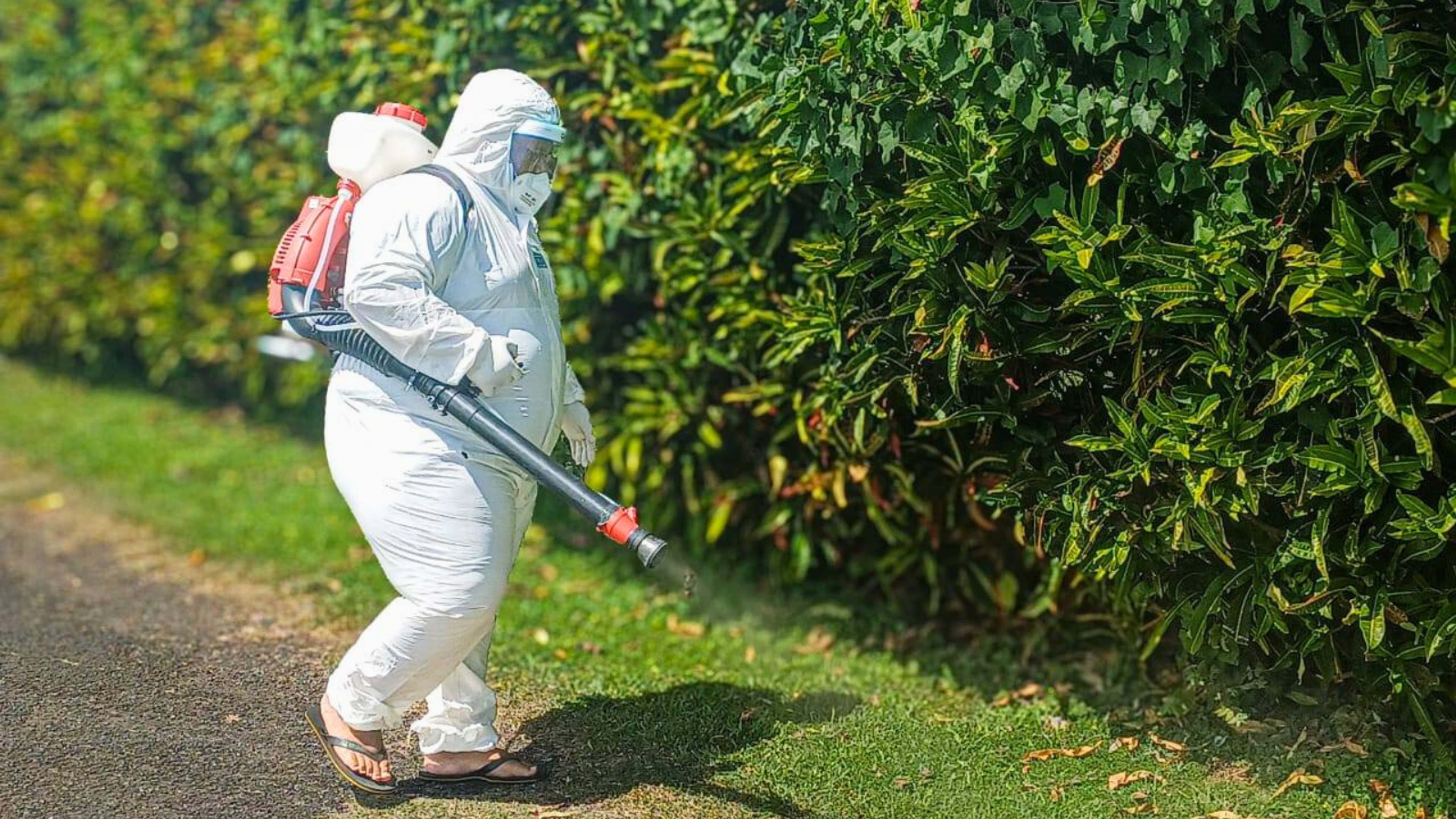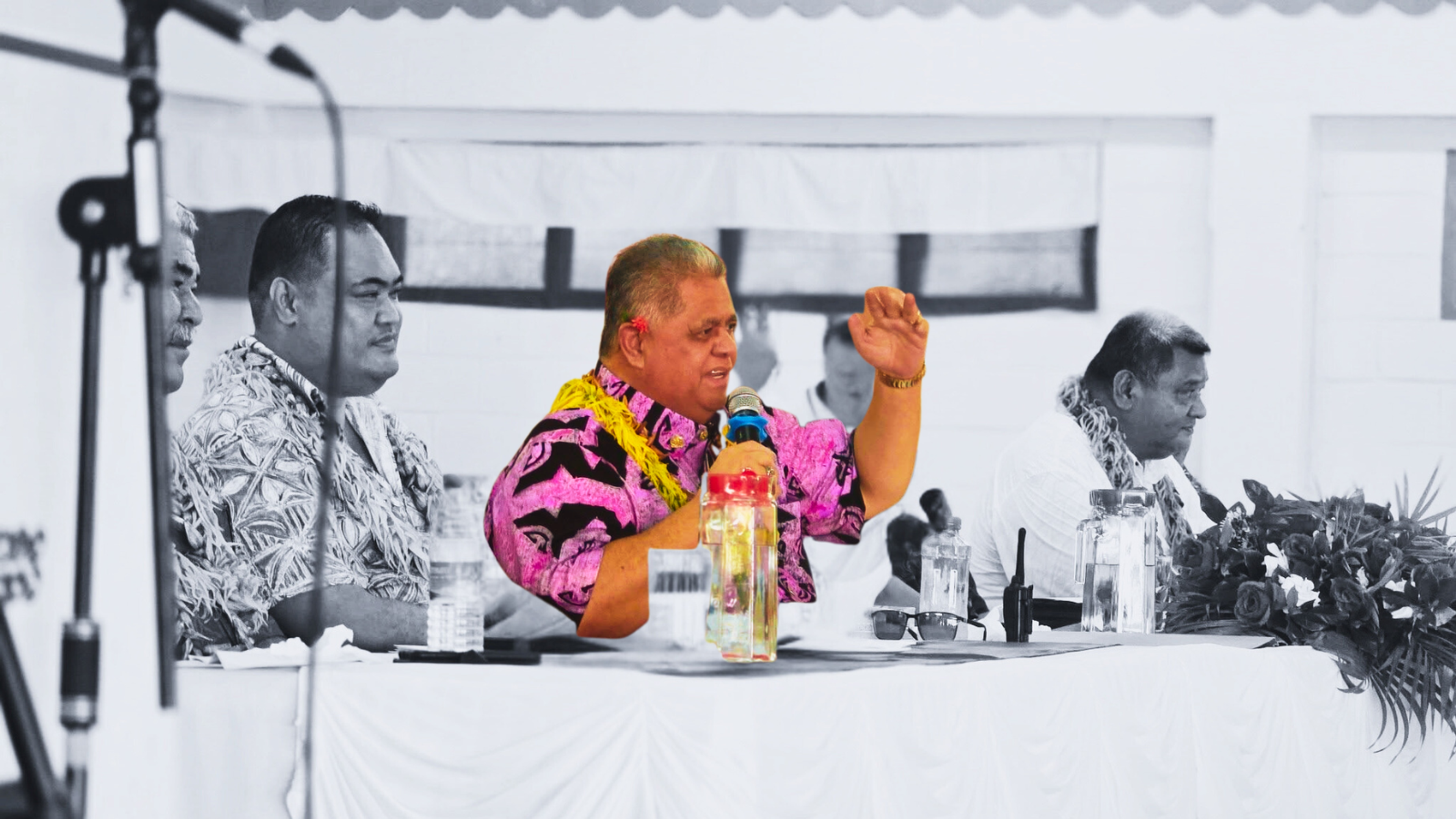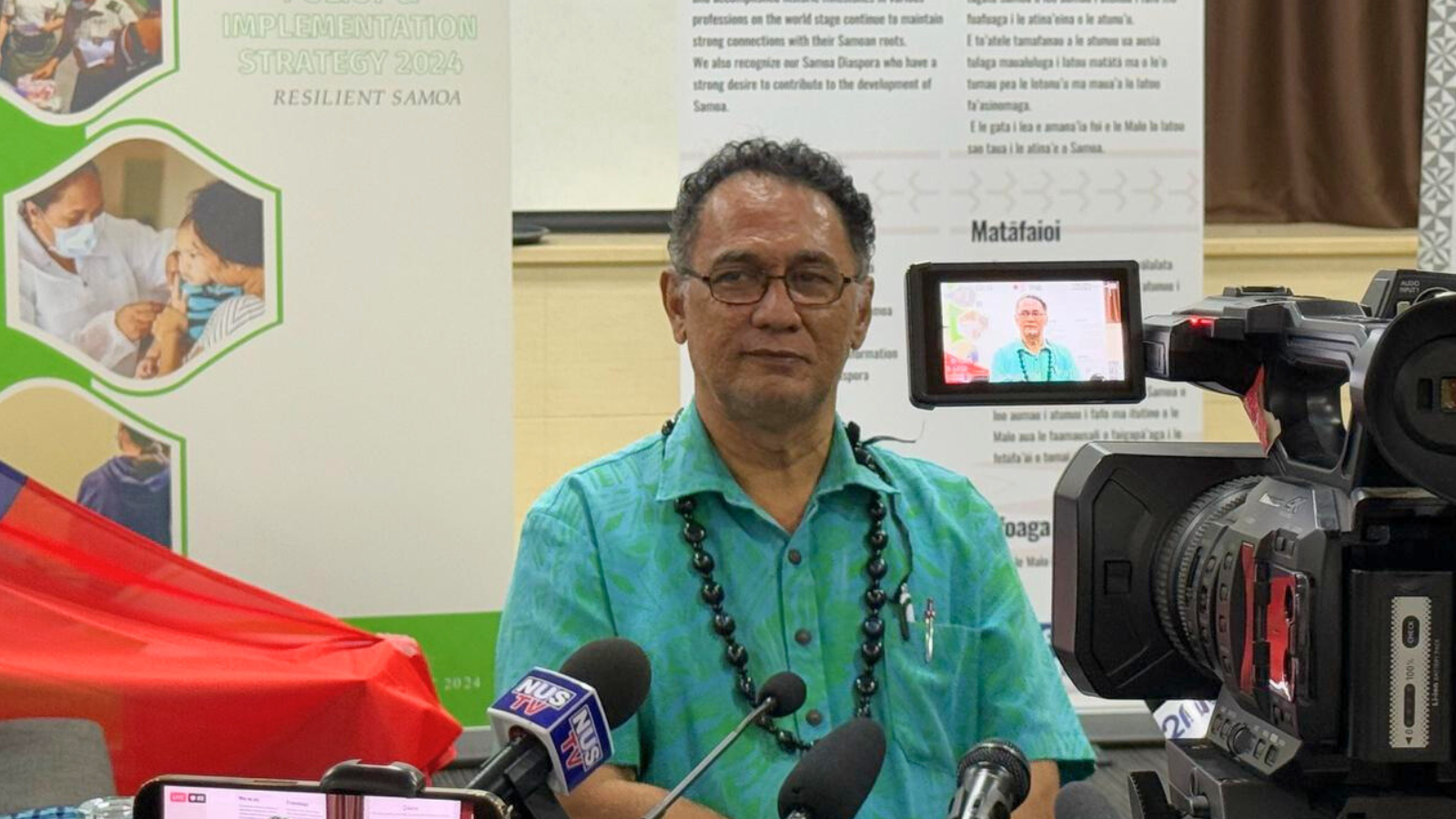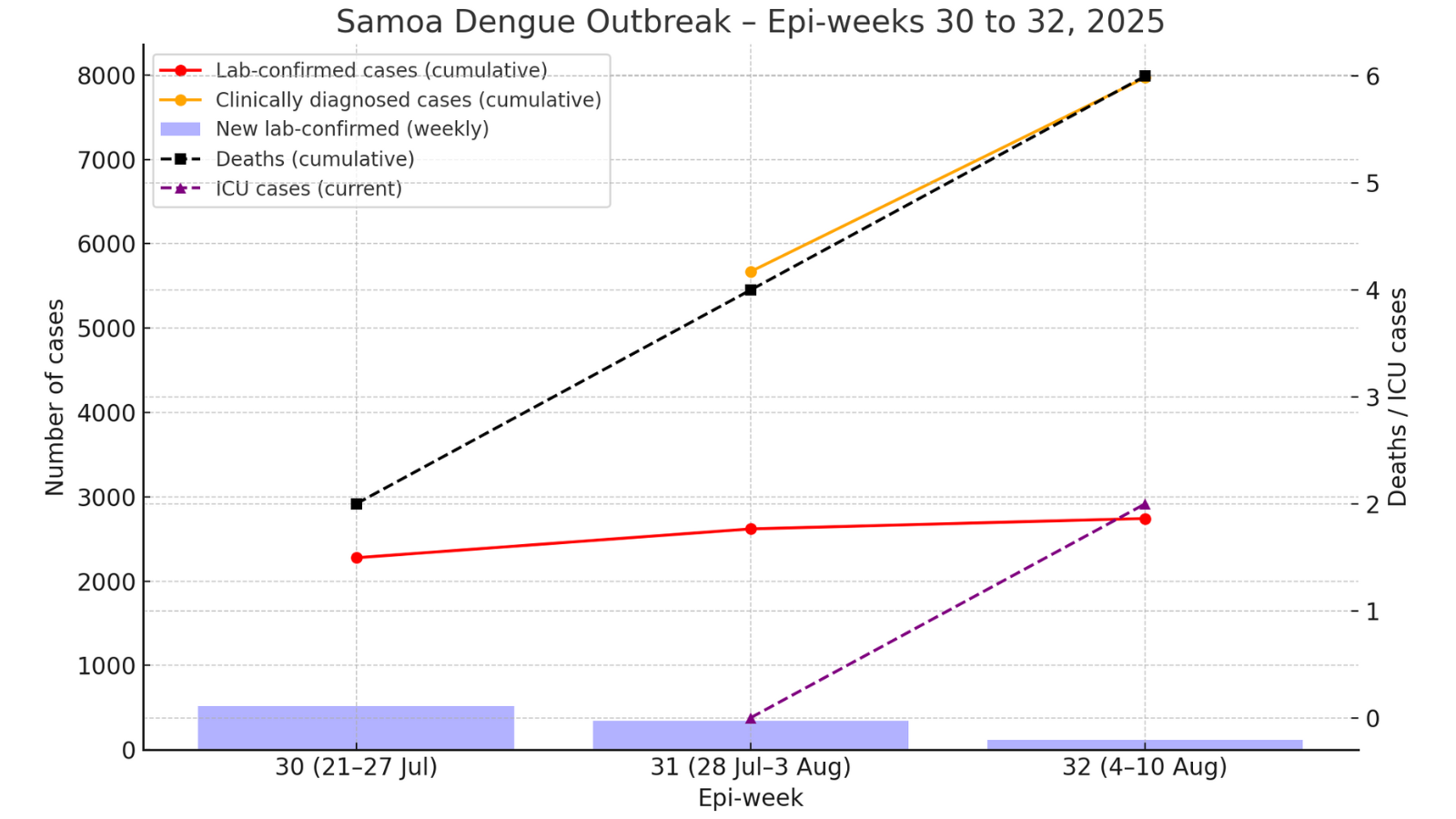

A nationwide clean-up is scheduled for Saturday, to be followed by a fumigation campaign supported by donor partners including New Zealand.
Photo/Ministry of Health-Samoa
Sāmoa dengue fever death toll rises to six ahead of elections
Health authorities warn against unsafe dosages and natural remedies as schools close indefinitely and a nationwide clean-up effort is planned.



New Zealand-United States minerals talks spark concerns over Pacific seabed mining

From netball star to Matatū: Fia Laikong speaks on leap of faith



New Zealand-United States minerals talks spark concerns over Pacific seabed mining

From netball star to Matatū: Fia Laikong speaks on leap of faith
Two weeks before the general elections, Sāmoa’s dengue outbreak continues to escalate. Prime Minister Fiamē Naomi Mata'afa confirmed to reporters on Thursday that a child died on 8 August, bringing the official death toll to six.
Health surveillance reports show a sharp rise in cases since the last comprehensive update from the National Emergency Operation Centre (NEOC), with reported cases increasing from around 5700 to almost 8000 in just seven days.
When asked whether she would declare a state of emergency, Fiamē says the Cabinet will make that decision based on advice from emergency authorities, with the process depending on the type of emergency. As the government is in a caretaker mode, only 25 per cent of the previous year’s budget can be utilised until a new government is formed.
“There are limitations… budgetary constraints, based on the caretaker government provisions, but there are allowances made for emergency situations. That’s one avenue we can go down if additional funding is needed to continue with planned activities.”
The latest dengue update comes with a notice that schools will remain closed until further notice. Flexible working arrangements are being introduced in the public sector to help families manage childcare and care for the sick.
Education’s Chief Executive, A’eau Chris Hazelman, says his ministry is reviewing assessment topics for the Year 12 national exams later this year, as the closures have significantly disrupted teaching.

Tagaloa Dr Robert Thompsen says natural remedies such as 'vai esi' won't cure dengue, but offer some relief and can help with recovery. Photo/Junior S. Ami
Health Ministry official Tagaloa Dr Robert Thompsen assured the public that medical supplies remain adequate. Fresh supplies of paracetamol, specially prepared for children, are expected to arrive next week with support from the World Health Organisation (WHO), Australia, and New Zealand.
Tagaloa cautioned against exceeding recommended medicine dosages, noting a recent case where a three-year-old was treated for a Panadol overdose. The child had consumed 10 times the safe amount, causing liver toxicity and early stages of coma. He also urged restraint when using natural remedies such as vai esi (fresh papaya leaf juice).
“It’s [vai esi] not a treatment, but it can help the system recover more quickly. We acknowledge its importance… but it must be taken with care, as it can be toxic for children if not prepared properly. We recommend seeking medical advice from doctors or nurses to ensure it’s safe.”
Watch Prime Minister Fiamē Naomi Mata'afa's address to the nation below.
Supplementary test kits from the WHO have arrived, along with chemical supplies for fumigation from Australia, China and the WHO.
Last week, New Zealand pledged $300,000 worth of medical supplies and announced it would send a small clinical team to assist Sāmoa’s health authorities. Foreign Affairs Minister Vaovasamanaia Winston Peters says New Zealand is ready to provide further support, underscoring the close ties between the two nations.
The NEOC has scheduled a countrywide clean-up for Saturday, 16 August, aiming to mobilise communities to clear rubbish and destroy mosquito breeding sites in a single day. Bulky waste pickups are planned for 13, 20, and 28 August. Fiamē says a full-scale fumigation campaign will follow, conducted in collaboration with the communities.
“We need to work together, by cleaning our environment… we’ve done this before for events like CHOGM to beautify our country for guests, but this time we’re doing it for ourselves.”
Sāmoa’s health authorities say lab analysis shows the DENV-1 is now the dominant strain in Sāmoa, accounting for 91 per cent of all cases, with the remaining nine per cent attributed to the DENV-2 strain.
There is no specific antiviral treatment for dengue; care focuses on rest, fluids, and paracetamol for fever and pain, while avoiding ibuprofen or aspirin to reduce the risk of bleeding.

Charting Sāmoa's dengue outbreak for the period 21 July to 10 August. Photo/PMN